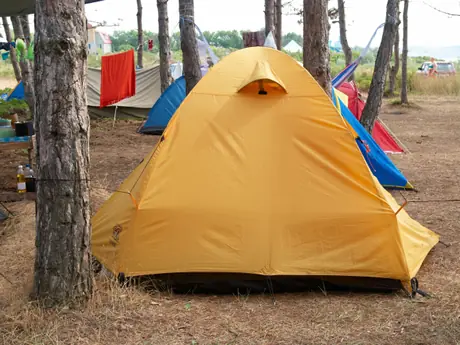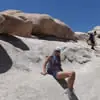
"Within a short drive of nearly every U.S. citizen is a goldmine of natural interaction and outdoor recreation waiting at a state park."
- Robert Loewendick, veteran camper and outdoors enthusiast
Though your camping experience is similar whether you're in a state park or a private campground, there are regulatory differences between the two. State run campgrounds, however, operate under most of the same rules and regulations, regardless of which park you visit. If you're one the 65 million people who camp at state parks, keep these eight tips in mind.
Outdoors Events Near You
Wetland Warriors Fly High Migrating Birds
National Trail Parks & Recreation • Springfield, OH
Fishing - Family
Columbus Recreation and Parks Department • Columbus, OH
Fishing
Wetland Warriors Wildflower Exploration
National Trail Parks & Recreation • Springfield, OH
Health
More: 5 Ways to be a Happy Camper
1. Make Your Reservation Early
Reservation windows vary from campground to campground. In most cases you can reserve your site 3 to 6 months advance. For peak camping season, which ranges from early May to early October, book your site right when the reservation window opens.
This is especially important if you plan to camp in a prime waterfront location or on the weekend. Weekday camping is often less busy, making it easier to book a site on short notice.
More: How to Plan a Camping Trip in 3 Steps
2. Practice Proper Noise Etiquette
Noise etiquette is especially important when you camp in state parks because your neighbors are often families with small children. To ensure everyone has the best experience, remember these two tips.
- Daily Noise: Many people camp to get away from the noise of everyday life; that includes music. Keep your tunes at a reasonable level to avoid disturbing someone else's getaway.
- Quiet Hours: Nearly every state park has quiet hours. Most start at 10 p.m. and last until until 6 or 8 a.m. Rangers will ask you to quiet down if you don't lower your noise levels.
3. Protect Your Food From Animals
State park camping is popular because most campgrounds are located deep in the wilderness, with plenty of space for hiking and exploring. Because of this, you should always prepare for curious wildlife.
Animals are more likely to snoop when no one is around, so lock up all the food when you leave the campsite or go to bed. Some campgrounds offer a bear box for food storage, but you can lock your coolers or hang them from a tree if boxes aren't provided.
- 1
- of
- 2
About the Author











Discuss This Article